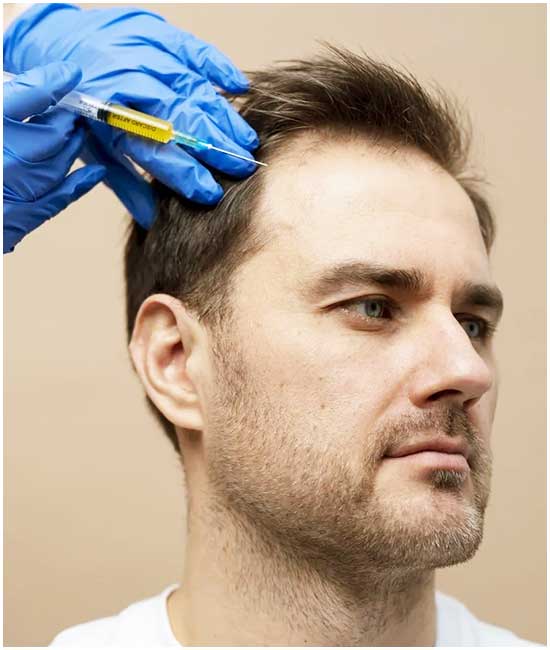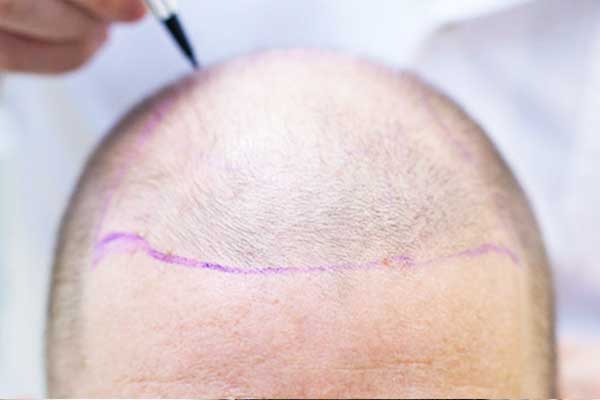Hair Transplant in Turkey
Hair transplant in Turkey is a renowned procedure that involves the transplantation of healthy hair follicles from one part of the scalp to areas experiencing hair loss or thinning.
Renowned for its affordability, expertise, and advanced techniques, Turkey has become a global hub for hair transplant procedures. Skilled surgeons perform the surgery using state-of-the-art technology such as Follicular Unit Extraction (FUE) or Follicular Unit Transplantation (FUT), ensuring natural-looking results and minimal scarring.
With a high success rate and a reputation for excellence, hair transplant in Turkey attracts patients from around the world seeking effective and affordable solutions for hair restoration.
Hair Transplant in Turkey

Surgery Time
4-8 HOURS

Time in Turkey
3-5 DAYS

Hospitalization
No required

Recovery
1-2 WEEKS

Transportation
PRIVATE DRIVER

Accommodation
4/5* HOTELS
GET FREE CONSULTATION
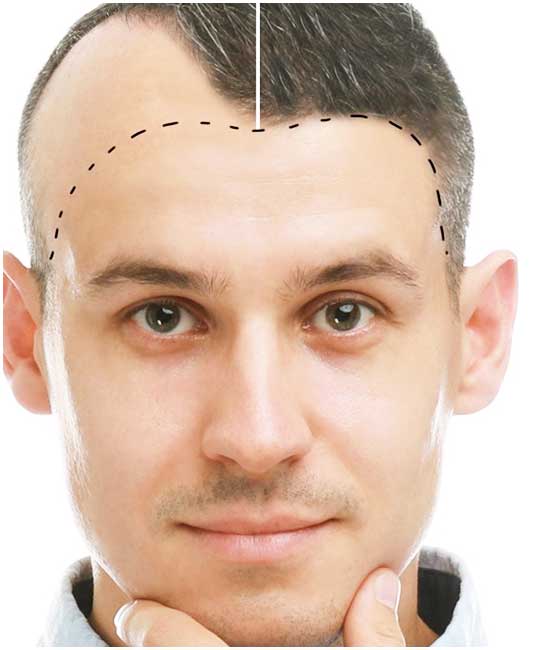
Understanding Hair Transplant in Turkey
Hair transplant in Turkey has become a globally recognized procedure for individuals seeking solutions for hair loss. It involves the transplantation of healthy hair follicles from one part of the scalp to areas experiencing hair thinning or baldness. Renowned for its advanced medical facilities, skilled surgeons, and competitive pricing, Turkey has emerged as a leading destination for hair transplant procedures.
Techniques such as Follicular Unit Extraction (FUE) and Follicular Unit Transplantation (FUT) are commonly used, offering natural-looking results with minimal scarring. With its affordability, expertise, and accessibility, hair transplant in Turkey provides an effective solution for individuals looking to restore their hair and confidence.
Types of Hair Transplant in Turkey
Hair transplant procedures in Turkey primarily revolve around two main techniques: Follicular Unit Extraction (FUE) and Follicular Unit Transplantation (FUT):
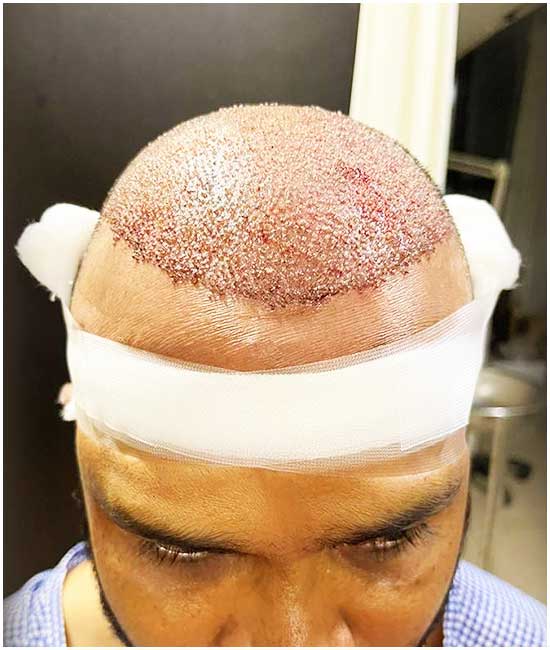
Follicular Unit Extraction (FUE)
FUE is a minimally invasive hair transplant technique that involves harvesting individual hair follicles from the donor area, typically the back or sides of the scalp, and transplanting them into the recipient area experiencing hair loss. This technique is renowned for its precision and natural-looking results. FUE does not leave a linear scar, making it a popular choice for patients who prefer shorter haircuts or have a limited donor supply.
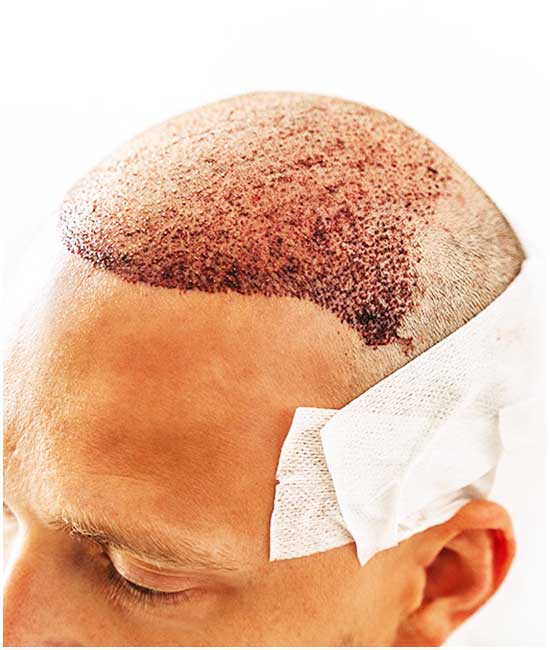
Follicular Unit Transplantation (FUT)
FUT, also known as strip harvesting, involves removing a strip of scalp tissue from the donor area, usually the back of the scalp. The strip is then dissected into individual follicular units under a microscope before being transplanted into the recipient area. While FUT may leave a linear scar, it can yield a higher number of grafts compared to FUE, making it suitable for patients requiring extensive hair restoration.
How much does Hair Transplant cost in Turkey?
Hair Transplant in Turkey procedures:
| Procedure | Duration (Nights) | Price (Euro) |
|---|---|---|
| Hair Transplantation – DHI Method | 3 | €1100.00 |
| Hair Transplantation – FUE Method | 3 | €1100.00 |
| Hair PRP + Hair Mesotherapy + Stem Cell Treatment | 1 | €1200.00 |
Hair Transplant Turkey Reviews
Hair transplant procedures in Turkey have garnered positive reviews from patients worldwide. Patients often praise the high quality of care, skilled surgeons, and natural-looking results achieved through hair transplant surgeries in Turkey. Many individuals who have undergone the procedure express satisfaction with the affordability and effectiveness of treatments offered by Turkish clinics.
Reviews highlight the professionalism and expertise of Turkish surgeons, who use advanced techniques such as Follicular Unit Extraction (FUE) and Follicular Unit Transplantation (FUT) to deliver excellent outcomes. Patients appreciate the comprehensive care provided throughout the entire process, from initial consultation to post-operative follow-up.
Furthermore, many patients commend the hospitality and attentiveness of clinic staff, as well as the convenience of travel and accommodation arrangements offered as part of hair transplant packages in Turkey. The positive experiences shared by patients in reviews contribute to Turkey’s reputation as a premier destination for hair restoration procedures.
Overall, Hair Transplant Turkey reviews reflect the satisfaction and confidence restored in individuals who have undergone hair transplant surgeries in the country, emphasizing the exceptional quality of care and outstanding results achieved through these procedures.
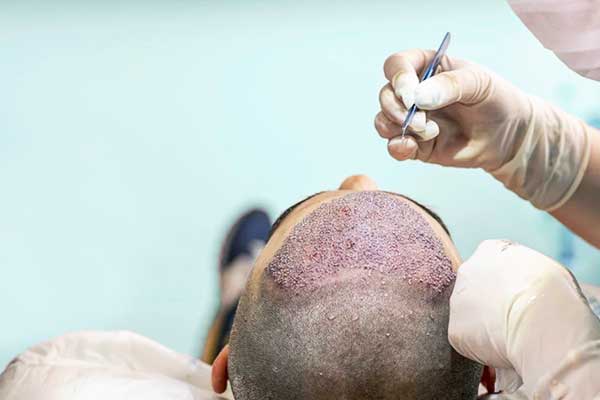
benefits of having a Hair Transplant
Hair loss can be distressing, impacting self-confidence. Fortunately, hair transplant procedures offer a solution. Here are the benefits:
✅ Improved Appearance
✅ Natural-Looking Results
✅ Permanent Solution
✅ Minimal Downtime
✅ No Ongoing Maintenance
✅ Enhanced Self-Esteem
✅ Customized Treatment
✅ Cost-Effectiveness
Preparing for Hair Transplant
Preparing for a hair transplant procedure involves several important steps to ensure optimal results and a smooth recovery process. Here’s what you need to know:
- Consultation with a Specialist: The first step in preparing for a hair transplant is to schedule a consultation with a qualified hair transplant specialist. During this consultation, the surgeon will assess your hair loss pattern, discuss your goals and expectations, and determine if you are a suitable candidate for the procedure.
- Medical Evaluation: Before undergoing a hair transplant, you may be required to undergo a medical evaluation to assess your overall health and determine if you have any underlying medical conditions that could affect the procedure or its outcome. This may include blood tests, a physical examination, and possibly other diagnostic tests as deemed necessary by your surgeon.
- Stop Smoking and Alcohol: If you smoke or consume alcohol, it’s advisable to quit or minimize these habits in the weeks leading up to your hair transplant surgery. Smoking and excessive alcohol consumption can impair healing and increase the risk of complications during and after the procedure.
- Discontinue Certain Medications: Some medications, such as blood thinners and non-steroidal anti-inflammatory drugs (NSAIDs), may increase the risk of bleeding during surgery. Your surgeon may advise you to discontinue these medications temporarily before your hair transplant. Be sure to follow your surgeon’s instructions regarding medication use closely.
- Follow Preoperative Instructions: Your surgeon will provide you with specific preoperative instructions to follow in the days leading up to your hair transplant surgery. This may include guidelines on showering, hair washing, and avoiding certain hair care products or styling techniques. It’s essential to adhere to these instructions to ensure the best possible outcome.
- Arrange Transportation: Since hair transplant procedures are typically performed on an outpatient basis, you’ll need to arrange for transportation to and from the clinic on the day of your surgery. You may also want to arrange for someone to accompany you home afterward, especially if you’ll be receiving sedation or anesthesia during the procedure.
- Plan for Recovery: While the downtime associated with a hair transplant is minimal, it’s essential to plan for your recovery period. Arrange to take a few days off work or other responsibilities to allow yourself time to rest and recover comfortably at home. Your surgeon will provide you with postoperative instructions to follow during this time.
By following these steps and adequately preparing for your hair transplant surgery, you can help ensure a successful procedure and achieve the best possible results in restoring your hair and confidence.
Hair Transplant Turkey Before and After
Hair transplant procedures in Turkey have gained popularity due to their exceptional before-and-after results. Patients often experience significant improvements in their hair density and overall appearance following the surgery.
Before the hair transplant procedure, patients may exhibit balding or thinning areas on the scalp, which can impact their self-confidence and aesthetic appearance. However, after the surgery, patients can expect to see a noticeable difference in the thickness and coverage of their hair.
The before-and-after transformation is often dramatic, with patients achieving a fuller head of hair and a more youthful appearance. Surgeons in Turkey employ advanced techniques such as Follicular Unit Extraction (FUE) or Follicular Unit Transplantation (FUT) to ensure natural-looking results that seamlessly blend with the patient’s existing hair.
Following the recovery period, which typically involves minimal downtime, patients can enjoy long-lasting results. The transplanted hair follicles continue to grow naturally, providing permanent coverage and enhancing the patient’s overall appearance.
In summary, the before-and-after results of hair transplant procedures in Turkey demonstrate the effectiveness of the treatment in restoring hair density and improving the aesthetic appearance of patients. With skilled surgeons and advanced techniques, Turkey has become a leading destination for individuals seeking successful hair restoration solutions.
Considering Hair Transplant in Turkey?
If you’re contemplating a hair transplant procedure, Turkey is undoubtedly a top destination to consider. Renowned for its world-class medical facilities, experienced surgeons, and competitive pricing, Turkey has emerged as a leading hub for hair transplant surgeries.
Here are several compelling reasons why you should consider having your hair transplant in Turkey:
- Expertise and Experience: Turkish surgeons are highly skilled and experienced in performing hair transplant procedures. They undergo rigorous training and adhere to strict standards of quality and safety, ensuring excellent outcomes for patients.
- Advanced Techniques: Turkey is at the forefront of hair transplant technology, offering state-of-the-art procedures such as Follicular Unit Extraction (FUE) and Follicular Unit Transplantation (FUT). These advanced techniques ensure natural-looking results with minimal scarring and downtime.
- Cost-Effectiveness: Hair transplant procedures in Turkey are significantly more affordable compared to many Western countries. Despite the lower cost, Turkish clinics maintain high standards of quality and safety, making it a cost-effective option for patients.
- Comprehensive Packages: Many hair transplant clinics in Turkey offer comprehensive packages that include not only the surgical procedure but also accommodation, transportation, and post-operative care. These packages provide convenience and peace of mind for patients traveling from abroad.
- Tourism Opportunities: Turkey is a beautiful country with rich history, stunning landscapes, and vibrant culture. Combining your hair transplant procedure with a leisure trip allows you to enjoy a memorable experience while achieving your aesthetic goals.
- International Reputation: Turkey has earned a solid reputation as a top destination for medical tourism, particularly for hair transplant procedures. Thousands of patients from around the world travel to Turkey each year to undergo hair transplant surgeries, attesting to the country’s excellence in this field.
- Patient Satisfaction: The high level of patient satisfaction with hair transplant procedures in Turkey is evident from numerous positive reviews and testimonials. Patients often praise the quality of care, professionalism of staff, and natural-looking results achieved through their surgeries.
In conclusion, if you’re considering a hair transplant, Turkey offers a compelling combination of expertise, advanced techniques, affordability, and tourism opportunities. With its renowned clinics and skilled surgeons, Turkey provides an excellent option for individuals seeking effective and affordable hair restoration solutions.
Recovery Process
The recovery process after a hair transplant procedure is a crucial phase that requires patience and adherence to post-operative instructions. While the specific recovery timeline may vary depending on the individual and the type of procedure performed (such as FUE or FUT), the following are general guidelines to follow:
- Immediate Post-Operative Period:
- After the surgery, you may experience some discomfort, swelling, and minor bleeding at the donor and recipient sites. This is normal and typically resolves within a few days.
- Your surgeon may provide pain medication or anti-inflammatory drugs to help manage discomfort and swelling. Follow your surgeon’s instructions regarding medication usage.
- It’s essential to keep your head elevated and avoid bending over or engaging in strenuous activities during the immediate post-operative period to minimize swelling and promote proper healing.
- First Week After Surgery:
- During the first week, you’ll need to be gentle with your scalp and avoid touching or scratching the treated areas.
- Your surgeon may recommend washing your hair gently with a mild shampoo after a few days to keep the scalp clean and prevent infection. Follow your surgeon’s specific instructions for hair washing.
- Avoid exposing your scalp to direct sunlight, extreme temperatures, or harsh chemicals during this time.
- Two Weeks After Surgery:
- By the end of the second week, any scabbing or crusting at the transplant sites should start to resolve. Avoid picking or scratching at these scabs to prevent damage to the newly transplanted hair follicles.
- You may be able to return to work or other activities as long as they do not involve strenuous physical exertion or exposure to potential contaminants.
- One Month After Surgery:
- At this stage, most of the transplanted hair will have shed, which is a normal part of the hair transplant process. Don’t be alarmed by this temporary shedding, as new hair growth will begin to emerge from the transplanted follicles in the coming months.
- Continue to follow your surgeon’s instructions regarding hair care and grooming routines. You may be advised to avoid certain styling products or treatments for a period to allow for optimal healing.
- Long-Term Recovery:
- Over the following months, you’ll gradually start to see new hair growth in the transplanted areas. The full results of the hair transplant may take several months to become apparent, as the newly transplanted hair follicles go through the natural growth cycle.
- Attend follow-up appointments with your surgeon as scheduled to monitor your progress and address any concerns or questions you may have during the recovery process.
Overall, the recovery process after a hair transplant requires patience and diligence in following post-operative instructions. By taking proper care of your scalp and adhering to your surgeon’s guidance, you can optimize the results of your hair transplant and enjoy natural-looking, long-lasting hair restoration.
